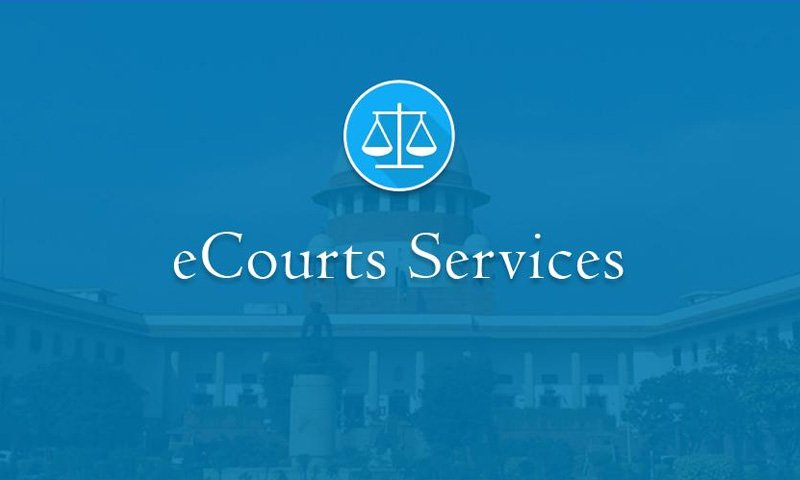Kerala High Court Clarifies: In a significant judgment that sets a precedent for insurance-related litigations, the Kerala High Court recently ruled that an insurance company is not obligated to issue a separate notice of cancellation if an insurance policy is canceled immediately after its issuance, especially when the insured party is aware of the cancellation. This ruling is expected to have a lasting impact on how insurers and insured parties handle documentation and communication, particularly in cases involving lapsed policies due to non-payment.
The case in question revolved around a motor accident claim filed by the wife, mother, and minor children of a deceased accident victim. During the proceedings before the Motor Accidents Claims Tribunal in Irinjalakkuda, the insurance company asserted that there was no active policy in effect at the time of the accident. According to the company, although an insurance policy (Exhibit B1) had been prepared, it was immediately canceled as the premium remained unpaid. All copies of the policy—including the customer copy—were retained by the insurance provider, signifying that the insured never received the final policy documentation.
The High Court sided with the insurer, stating that when the policy is annulled at inception due to non-payment and the insured is aware of this fact, issuing a separate cancellation notice is redundant. This ruling clarifies a key legal ambiguity surrounding the need for cancellation notices and underlines the importance of completing all payment formalities for policies to remain valid and enforceable. It also serves as a warning for insured individuals to verify and secure proper documentation and payment confirmation from insurers to avoid such legal complications.
Who Can Apply for Insurance Policies?
Insurance policies in India are open to:
- Individuals: Anyone aged 18 and above can apply for personal, life, or motor insurance.
- Corporates: Businesses can apply for group insurance or commercial vehicle policies.
- Vehicle Owners: Especially required for motor insurance as per the Motor Vehicles Act.
- Tenants/Homeowners: For property and home insurance.
- Health Conscious Individuals: For those looking to safeguard against medical emergencies.
However, this case reminds applicants that policies are only valid upon successful premium payment and policy confirmation.
Insurance Fees (Premiums)
Insurance fees, also known as premiums, vary based on:
- Type of Insurance: Motor, health, life, travel, etc.
- Policyholder Risk Profile: Age, health status, driving history.
- Coverage Amount: Higher coverage typically leads to higher premiums.
- Add-on Covers: Additional benefits like zero depreciation, critical illness, etc., may increase premiums.
Important: Policies not supported by actual premium payment will not be legally enforceable—as seen in this recent Kerala High Court case.
Also read: SBI Card to Withdraw Complimentary Air-Accident Insurance on Select Cards: What You Need to Know
How to Use and How It Benefits
How to Use:
- Purchase & Pay Premium: Choose the right policy and complete payment.
- Receive Policy Document: Always verify receipt of all copies—original and customer.
- Claim Process: In case of incident, file a claim through the official insurer portal or by visiting a branch.
- Track Status: Stay updated through SMS, email, or mobile app.
Benefits:
- Financial Security: Protects your assets, health, or dependents from sudden financial burdens.
- Legal Compliance: Especially for vehicle owners, mandatory by law.
- Peace of Mind: Minimizes financial stress in emergencies.
- Tax Benefits: Premiums paid are eligible for deductions under Income Tax Act Sections 80C and 80D.
How to Apply for an Insurance Policy
- Choose the Right Insurer: Select based on reputation, reviews, and claim settlement ratio.
- Visit Official Website: All major insurers have online application portals.
- Fill Proposal Form: Submit accurate personal and risk-related details.
- Upload Documents: Aadhaar, PAN, medical records (if applicable), RC book for vehicles.
- Make Payment: Ensure successful transaction. Kerala High Court Judgment Source – LiveLaw
- Verify Policy Receipt: Check email or customer portal for policy document.
Important Dates
| Event | Description |
|---|---|
| Policy Issuance | Immediate after application & payment |
| Cancellation Deadline | No specific date if canceled instantly due to non-payment |
| Renewal Due | Annually (varies by policy type) |
| Grace Period | Typically 15–30 days post expiry for renewal |
| Claim Window | Varies, usually 7–30 days post-incident |

Disclaimer
This article is for informational purposes only and should not be construed as legal advice. Readers are advised to consult legal professionals or the official insurance provider for case-specific queries. The above summary is based on a Kerala High Court ruling and general insurance procedures in India. Policy terms may vary depending on the insurer and the type of coverage selected.
Kerala High Court Clarifies Conclusion
The Kerala High Court ruling is a crucial reminder of the significance of timely premium payment and the proper issuance of policy documents. In an era where digital transactions dominate, there’s an increased tendency to assume that policy issuance is automatic post-application. However, this case clearly shows that until the insurer confirms the policy and the premium is received, the contract remains incomplete.
This verdict also safeguards insurers from liability where due process wasn’t completed. At the same time, it highlights the need for transparency and communication between insurers and insured. Customers must ensure they have received all documentation before assuming they are covered.
For claimants, especially in motor accident cases, verifying the policy status at the time of the accident is crucial. Otherwise, it could lead to claim denial and complex litigation—something that can be avoided through basic due diligence.
Ultimately, this High Court decision reinforces the foundation of contractual obligations in the insurance sector. It draws a clear boundary between policy preparation and policy validation—making it essential for consumers to treat insurance as an active financial agreement, not a passive assumption.
Kerala High Court Clarifies FAQs
1. Is a separate notice of cancellation mandatory for insurance policies?
No, not if the policy was canceled immediately after issuance due to non-payment, and the insured was aware. The Kerala High Court held that such notice is not required when the insurer retains all policy copies and the contract is void from inception.
2. What happens if I don’t pay the premium after receiving the policy document?
If the premium isn’t paid, the insurance company can cancel the policy immediately. As seen in this case, the policy is considered null and void. It’s crucial to complete payment and confirm policy status before assuming coverage.
3. Can I claim insurance if I have the policy number but not the document?
Possessing a policy number alone isn’t sufficient. You need proof of premium payment and policy activation. Always check if you’ve received the customer copy and email confirmation from the insurer.
4. What should I do if my insurance application was canceled?
You should:
- Contact the insurer for clarification.
- Request a written explanation.
- Check for refund (if partial payment was made).
- Apply again with complete payment.
Documentation from the insurer confirming the cancellation will protect you legally.
5. Does this Kerala High Court ruling apply to all types of insurance?
The ruling specifically addresses motor insurance under the Motor Vehicles Act, but its logic may be applied in other types of insurance where similar conditions exist—particularly regarding policy cancellation due to non-payment and known cancellation status.











